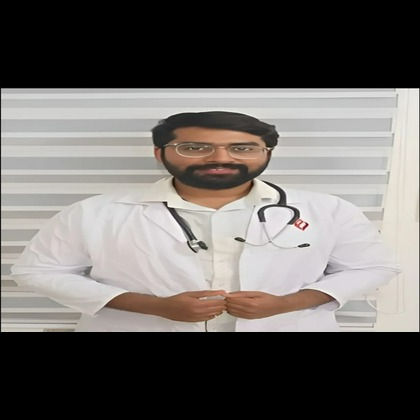Dermatomyositis Overview: Symptoms and Treatment
Get a clear overview of Dermatomyositis. Learn about its key symptoms, including muscle weakness and skin rashes, and explore the various treatment options.

Written by Dr. Mohammed Kamran
Reviewed by Dr. Rohinipriyanka Pondugula MBBS
Last updated on 24th Aug, 2025

Living with a rare condition like dermatomyositis can be challenging, but understanding the disease can help you manage it better. This article will guide you through the symptoms, causes, and treatment options in simple terms, so you can take informed steps toward better health.
What is Dermatomyositis?
Dermatomyositis is a rare inflammatory disease that affects the muscles and skin. It causes muscle weakness and skin rashes, making daily activities difficult for those who have it. While the exact cause is unknown, it is believed to be an autoimmune disorder, meaning the body’s immune system mistakenly attacks its own tissues.
This condition can affect people of any age but is more common in adults between 40 and 60 and in children between 5 and 15 (known as juvenile dermatomyositis). Early diagnosis and treatment can help manage symptoms and improve quality of life.
Symptoms of Dermatomyositis
The two main symptoms of dermatomyositis are:
- 1. Muscle Weakness – Usually affects muscles closest to the trunk (shoulders, hips, thighs, neck). This can make it hard to climb stairs, lift objects, or even raise your arms.
- 2. Skin Rashes – A distinctive purple or red rash often appears on the face (especially eyelids), knuckles, elbows, knees, chest, and back.
Other Possible Symptoms:
- Fatigue
- Joint pain
- Difficulty swallowing (dysphagia)
- Shortness of breath (if lungs are affected)
- Calcium deposits under the skin (more common in children)
If you notice these symptoms, consult a doctor for proper evaluation.
What Causes Dermatomyositis?
The exact cause is still unclear, but possible factors include:
- Autoimmune Reaction – The immune system attacks healthy muscle and skin cells.
- Genetic Factors – Some people may have a genetic predisposition.
- Viral Infections – Certain infections might trigger the condition.
- Cancer (in some cases) – Adults with dermatomyositis have a slightly higher risk of cancer, so screening may be recommended.
How is Dermatomyositis Diagnosed?
Doctors use several tests to confirm dermatomyositis, including:
- Blood Tests – To check for muscle enzymes and autoantibodies.
- Electromyography (EMG) – Measures muscle electrical activity.
- MRI – Detects muscle inflammation.
- Muscle or Skin Biopsy – A small tissue sample is examined under a microscope.
If you suspect dermatomyositis, booking a consultation with a rheumatologist or dermatologist is essential.
Treatment Options
While there is no cure for dermatomyositis, treatments can help control symptoms and improve muscle strength. Common approaches include:
1. Medications
- Corticosteroids (Prednisone) – Reduce inflammation.
- Immunosuppressants (Methotrexate, Azathioprine) – Suppress the overactive immune system.
- Biologic Therapies (IVIG, Rituximab) – Used in severe cases.
2. Physical Therapy
- Helps maintain muscle strength and flexibility.
- Prevents joint stiffness.
3. Skin Care
- Use sunscreen to protect rashes from sun exposure.
- Moisturize skin to prevent dryness.
4. Lifestyle Changes
- Balanced Diet – Antiinflammatory foods (fruits, vegetables, omega3s) may help.
- Gentle Exercise – Yoga or swimming can improve mobility without straining muscles.
- Rest – Avoid overexertion to prevent fatigue.
5. Regular Monitoring
Since dermatomyositis can affect the lungs and heart, regular checkups are important.
Consult a General Physician For The Best Advice
When to See a Doctor?
If you experience:
- Persistent muscle weakness
- Unexplained rashes
- Difficulty swallowing or breathing
Seek medical attention immediately. Early treatment can prevent complications.
Final Thoughts
Dermatomyositis can be a tough condition, but with the right care, many people lead active lives. If you or a loved one is experiencing symptoms, don’t hesitate to reach out to a specialist.
Need expert advice?
You can book a consultation with a dermatologist or rheumatologist through Apollo 24|7 for personalized care and treatment options.
Stay informed, stay proactive, and take control of your health!
Consult a General Physician For The Best Advice
Consult a General Physician For The Best Advice

Dr. Mohamed Azeem
General Physician/ Internal Medicine Specialist
2 Years • MBBS,MD(Internal Medicine) CCEBDM
Karaikudi
Apollo Hospitals Karaikudi, Karaikudi

Dr. Sandhya Chandel
General Physician/ Internal Medicine Specialist
16 Years • MBBS, MD (Int. Med.), IDCCM
Bilaspur
Apollo Hospitals Seepat Road, Bilaspur
(100+ Patients)

Dr. Swathi Reddy Perugu
General Physician/ Internal Medicine Specialist
7 Years • MBBS, MD (General Medicine)
Hyderabad
Health plus, Hyderabad

Dr. Rajib Ghose
General Practitioner
25 Years • MBBS
East Midnapore
VIVEKANANDA SEBA SADAN, East Midnapore

Dr. Chethan T L
General Physician/ Internal Medicine Specialist
5 Years • MBBS, MD, DNB (General Medicine)
Bengaluru
Apollo Medical Center, Marathahalli, Bengaluru
Consult a General Physician For The Best Advice

Dr. Mohamed Azeem
General Physician/ Internal Medicine Specialist
2 Years • MBBS,MD(Internal Medicine) CCEBDM
Karaikudi
Apollo Hospitals Karaikudi, Karaikudi

Dr. Sandhya Chandel
General Physician/ Internal Medicine Specialist
16 Years • MBBS, MD (Int. Med.), IDCCM
Bilaspur
Apollo Hospitals Seepat Road, Bilaspur
(100+ Patients)

Dr. Swathi Reddy Perugu
General Physician/ Internal Medicine Specialist
7 Years • MBBS, MD (General Medicine)
Hyderabad
Health plus, Hyderabad

Dr. Rajib Ghose
General Practitioner
25 Years • MBBS
East Midnapore
VIVEKANANDA SEBA SADAN, East Midnapore

Dr. Chethan T L
General Physician/ Internal Medicine Specialist
5 Years • MBBS, MD, DNB (General Medicine)
Bengaluru
Apollo Medical Center, Marathahalli, Bengaluru